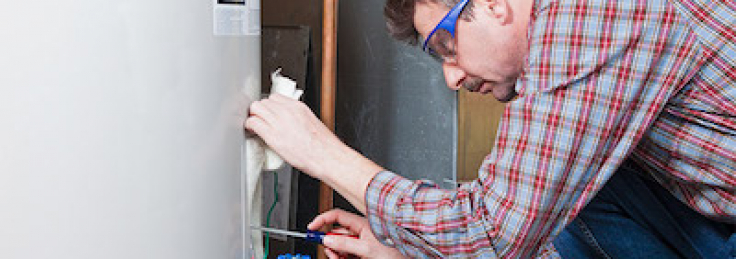Usual Heater Issues Explained
Usual Heater Issues Explained
Blog Article
Just how do you really feel on the subject of Water Heaters Problems?

Think of beginning your day without your routine hot shower. That currently establishes an inadequate tone for the rest of your day.
Every residence requires a dependable water heater, but only a few recognize how to take care of one. One simple way to maintain your hot water heater in top form is to look for faults frequently and repair them as quickly as they appear.
Remember to switch off your water heater prior to sniffing around for mistakes. These are the water heater mistakes you are most likely to experience.
Water as well hot or too chilly
Every water heater has a thermostat that figures out how hot the water gets. If the water coming into your house is too warm in spite of setting a convenient optimum temperature, your thermostat could be damaged.
On the other hand, too cold water may result from a stopped working thermostat, a broken circuit, or inappropriate gas circulation. For example, if you utilize a gas water heater with a damaged pilot burner, you would certainly get cold water, even if the thermostat is in ideal condition. For electric heating units, a blown fuse may be the offender.
Lukewarm water
No matter just how high you established the thermostat, you won't get any type of hot water out of a heater well past its prime. A water heater's performance might decrease with time.
You will certainly also get lukewarm water if your pipelines have a cross connection. This implies that when you activate a faucet, warm water from the heating system streams in alongside normal, cold water. A cross connection is very easy to area. If your warm water taps still run after closing the hot water heater valves, you have a cross link.
Weird noises
There are at the very least 5 kinds of sounds you can learn through a water heater, however one of the most usual analysis is that it's time for the water heater to retire.
Firstly, you must recognize with the regular appears a hot water heater makes. An electrical heating system might appear various from a gas-powered one.
Standing out or banging audios generally imply there is a slab of sediment in your tanks, and it's time to cleanse it out. On the other hand, whistling or hissing audios might just be your valves letting some stress off.
Water leakages
Leakages might come from pipes, water connections, shutoffs, or in the worst-case scenario, the storage tank itself. Gradually, water will certainly corrode the container, and find its way out. If this occurs, you require to change your hot water heater as soon as possible.
Nevertheless, prior to your adjustment your entire tank, make sure that all pipes remain in location and that each valve works completely. If you still require help determining a leak, call your plumber.
Rust-colored water
Rust-colored water suggests one of your water heater components is corroded. Maybe the anode rod, or the container itself. Your plumber will certainly be able to determine which it is.
Not enough hot water
Water heaters been available in lots of dimensions, relying on your warm water needs. If you lack warm water prior to every person has actually had a bathroom, your hot water heater is as well little for your family size. You ought to think about setting up a larger water heater container or opting for a tankless water heater, which occupies less space and also is a lot more long lasting.
Discoloured Water
Rust is a significant root cause of dirty or discoloured water. Corrosion within the water storage tank or a failing anode rod can trigger this discolouration. The anode pole secures the tank from rusting on the within and also must be examined yearly. Without a pole or a properly working anode pole, the hot water quickly corrodes inside the tank. Contact a professional water heater specialist to identify if replacing the anode rod will certainly take care of the problem; if not, replace your hot water heater.
Final thought
Ideally, your hot water heater can last one decade before you need an adjustment. Nonetheless, after the 10-year mark, you may experience any one of these faults much more regularly. At this point, you should include a brand-new hot water heater to your budget plan.
How To Troubleshoot 3 Common Water Heater Problems in Twin Cities
The Water Heater Is Leaking
A leaky cold water inlet valve A loose pipe fitting A leaky temperature and pressure relief valve A corroded anode rod A cracked tank Turn Off Your Water Heater:
Shut off your gas water heater by turning the gas valve on the unit to the “OFF” position. Shut off your electric water by switching its power off at your electrical panel. Look for a two-pole breaker labeled “water heater” and turn it to the “OFF” position. Move the ball valve connected to the water heater to be perpendicular to the piping at a 90° angle. Look for the Leak:
Depending on whether the water is coming from the tank's top or bottom, you’ll want to look for the leak in different locations.
If the leak comes from the top of the tank, carefully look for water escaping from the cold water inlet valve or loose pipe fittings. Rusted hot and cold water valves can have loose connections with the tank, with water leaking out of them.
https://mspplumbingheatingair.com/blog/how-to-troubleshoot-3-common-water-heater-problems
As an enthusiastic person who reads about Common Problems with Your Home Water Heater, I was thinking sharing that topic was beneficial. Do you know about anybody else who is interested in the niche? Feel free to share it. Thanks a lot for your time spent reading it.
Free Quote Report this page